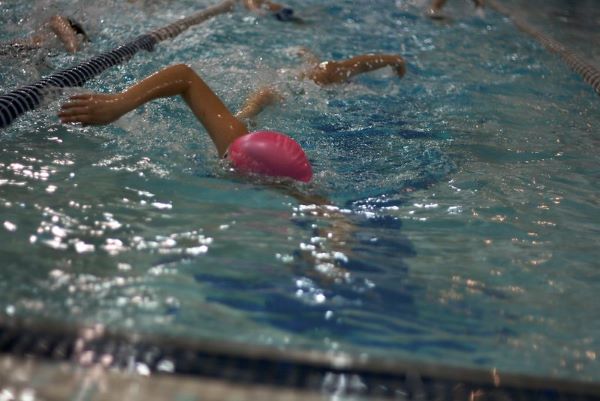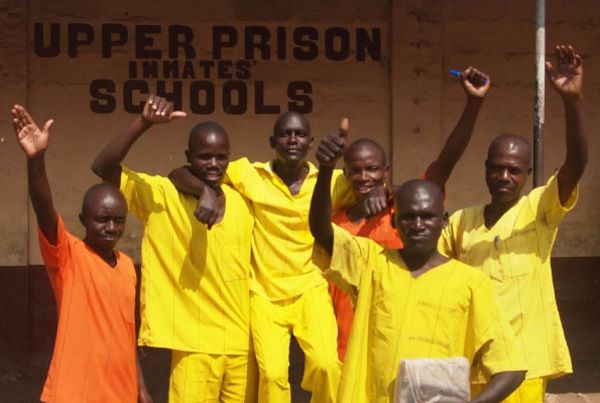Here is an inspiring story for you.
In 2006, before starting as a law student at Nottingham University, Alexander McLean went on a gap year to Uganda volunteering with Hospice Africa.
He was sent to Luzira Upper, the main maximum-security prison in Kampala. The conditions Alexander encountered there shocked him to the core. He found himself caring for an emaciated dying man, ignored and abandoned by the police.
In a Road to Damascus moment, Alexander decided to change the course of his life and set up the African Prisons Project (APP), working with the people in prisons to transform these conditions.
At first, he responded with simple things like setting up a library, but he soon became more thoughtful and intentional about what might be achieved. He looked hard at the problems in the prisons – severe over-crowding, illiteracy, harsh regimes, and very little understanding of the law. More than half the people in prison were on remand, and more than 80 per cent had had no legal advice.
Everyone in prison had complex life stories and there were causes and conditions surrounding the choices they had made. Talking with the people in prison, he became vividly aware of the needless waste of potential caused by the inadequate criminal justice system.
Alexander began fundraising and consciousness-raising. As well as working to improve prisoners’ health, diet and physical conditions, he quickly realised that the primary problem was the widespread lack of understanding of the law.
As the project grew, APP raised enough money for some of the people in prison to study for the University of London Distance Learning Law degree. In Luzira and other prisons small groups of incarcerated people, and some guards, passed their exams. Then they began to advise others in prison about their rights.
Fund-raising for justice work is always tough. People understandably give priority to health, education, environmental projects. When the first two words they hear are “Africa” and “prisons” not everyone is sympathetic.
Alexander’s vision is for a worldwide transformation of justice systems – spearheaded by those with lived experience – and so the name was changed to Justice Defenders.
Justice Defenders’ work developed and all the people who had been trained in law started acting as paralegals for their fellows. Today Justice Defenders is well-established in Uganda, Kenya and the Gambia and there are more than 300 paralegals offering legal services in 35 prisons.
One spectacular example of such advocacy is provided by the story of Susan Kigula.
Susan was convicted of murdering her partner, which she denies, and sentenced to death. On death row in Kampala she passed her London University Law degree and represented herself and others.
She realised that the mandatory death penalty for murder in Uganda was arguably contrary to more fundamental laws in the Ugandan constitution. Representing herself and 417 other people on death row, Susan took a test case all the way to the Supreme Court, challenging the rule.
When she won the case, everyone sentenced to death under the mandatory rule had to be re-sentenced. After she was released, Susan has been invited to speak to President Macron and at the United Nations.
By then, people working for prison reform around the world had noticed the work of Justice Defenders and the prizes started to follow.
Alexander had already been voted by Time magazine as one of the 30 people under 30 doing most to change the world. Now his organisation won several prizes, including the World Justice Project top global prize for facilitating access to justice.
An answer to prayer came along in the form of Anderson Cooper who hosts 60 Minutes in the USA. He visited the prisons and made a documentary that was broadcast to millions of people in America. People from the hidden world of African prisons thus became the real “voice of the voiceless”.
Other documentary makers also highlighted the work, including Al Jazeera and Vice Sports, which made a brilliant programme about the football tournament inside Luzira Upper Prison.
When the pandemic struck there were widespread fears about the effects on life in overcrowded poorly equipped prisons including those in Kenya and Uganda. However, the prison authorities there agreed to allow teaching sessions via Zoom. The courts also agreed to allow zoom-based hearings.
This combination meant that even more people in prison could be taught law and the paralegals could help many more people with their cases. Hundreds of innocent prisoners were released.
In the immediate future, funding from governments and individuals is unlikely to grow rapidly. However, one possible source of funding is “venture philanthropy”.
Rich people are sometimes willing to give substantial sums to support causes which are risky and without much prospect of immediate financial reward. Several wealthy people have visited our prisons in Africa and seen the work for themselves. Some of these have started to give substantial financial support.
Although Justice Defenders is still very small, its funding has increased more than tenfold in recent years. We now have a wide spectrum of people participating in the work.
As the Tablet webinar on Prison Reform, Rehabilitation and Redemption demonstrated, prison systems in the UK and everywhere on earth are failing. They are dysfunctional in many ways, unnecessarily expensive, and often cruel and unjust. The present systems reinforce the well-known vicious cycles of crime poverty and violence.
Justice Defenders has been invited to try to introduce its transformative system in several countries and in some American states. As I write, Alexander is teaching law in a US prison and learning how we could bring our practices to the most powerful and imprisoning country on earth.
The challenge now is to transform criminal justice systems around the world. People do harmful things but there are many ways of responding.
Jesus demonstrated in his encounters that such transformation is possible. The dying man cared for by Alexander has much to answer for.
Justice Defenders is open to all without any exclusion. Alexander himself is a committed Christian with a burning faith. He is inspired by Oscar Romero’s work in El Salvador as another voice of the voiceless. Alexander and Justice Defenders work to build a radically inclusive community in solidarity with all those who are searching for justice.
George Daly started working for Justice Defenders in 2013 after he, his wife and the 14 school children in their care survived an attack in Tanzania. The experience opened their eyes to the realities of Justice in Africa.



 Loading ...
Loading ...
What do you think?
You can post as a subscriber user ...
User comments (0)